The latest color revolution in the Islamic world continues to unfold in Sudan. After the April coup d’état and the attempt to find consensus on a new power structure including the opposition and the military, on July 11, a new attempt to escalate the situation was carried out by opposition forces with a radical pro-western orientation. In the course of these protests, at least 16 people were detained.
Context
At the end of 2018, major protests erupted in Sudan due to high bread prices and the general deterioration of the economic situation. On April 11, 2019, this culminated in the resignation of President Omar al-Bashir. Since then, the country has been controlled by the Transitional Military Council – a kind of deep state. At the head of this council is the neutral figure Abdel Fattah al-Burhan, who is trying to prevent the escalation and further division of Sudan into separate regions.
At the moment, Sudan is attempting to find a political solution based on a dialogue between the military and the mixed political opposition, where, in addition to the liberal-globalist forces, there are also several moderate and even patriotic organizations and parties. The pan-African organization African Union has taken on a mediating role in this process.
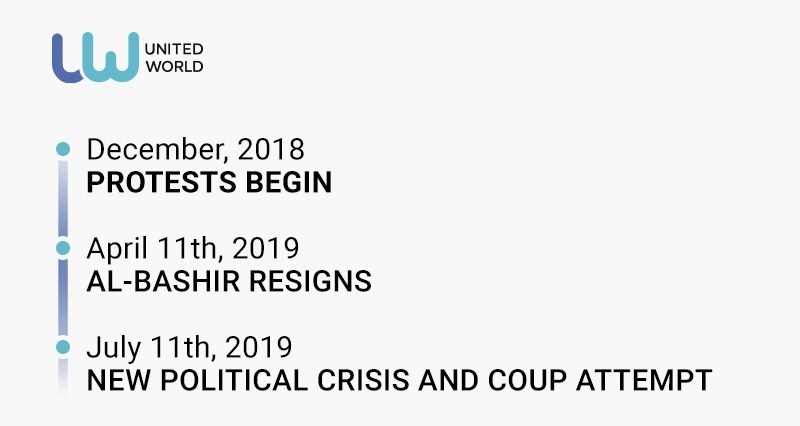
Recent events
On July 11, an attempt to destabilize the situation further was prevented by the military and security forces. General Jamal Omar of the Transitional Military Council called this an attempt to disrupt the agreement that was reached between the Council and the Alliance for Freedom and Change. Now, with the mediation of the civilian African Union, the military and the opposition continue to work out a joint project for further political transformation in Sudan.
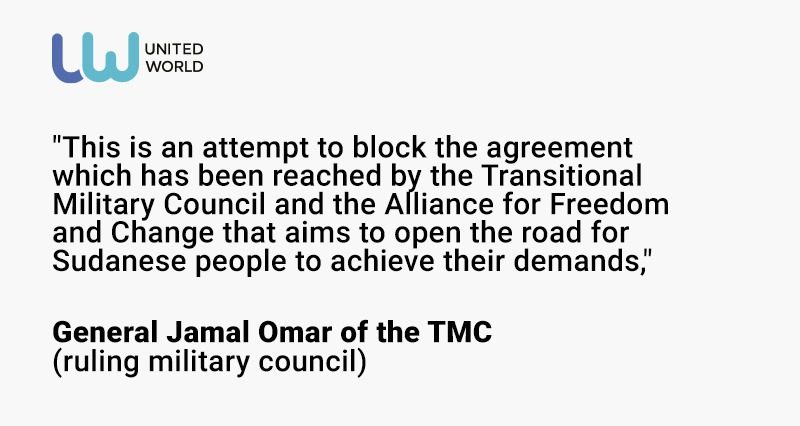
Details
Initially, the Transitional Military Council planned to carry out the transit of power within two years. The military and political opposition were actively negotiating to overcome the political crisis and reach agreement on the composition of the future government, which will be co-led by the military and civilians. There are many pro-Western forces among the population, some disguised as supporters of an “open society” without “corruption”, who are in reality color revolution experts blending with the real protestors and promoting the bloodshed.
At the same time, it is of particular concern that representatives of the military were also detained along with members of the opposition – security forces detained more than ten officers. According to authorities, the rebels wanted to hinder negotiations between the Transitional Military Council and representatives of the opposition. The participation of the military suggests that yet another coup d’état was at the center of the recent unrest.
Globalist color revolution?
Turkish media and President Erdogan himself initially interpreted the overthrow of al-Bashir as a color revolution directed against Turkey, as well as against countries oriented toward multipolarism, i.e. China, Iran and the Russian Federation.
It is well known that al-Bashir relied on the supprot of the Muslim Brotherhood, which is strongly backed by Erdogan. Economic, political and cultural ties between Sudan and Turkey were also close (Turkey provided scholarships to Sudanese students, in 2018 the Turkish company Summa announced that in 2019 it would begin to build a new airport in Khartoum worth 1.15 billion dollars, Turkey leased 780,500 hectares agricultural land in Sudan for 99 years, Erdogan called Bashir “his brother”, Turkey is funding the construction of mosques in Sudan, etc.).
All of these initiatives came to a halt after the overthrow of al-Bashir. Ankara, therefore, began to link the events in Sudan with color revolution and its domestic terrorist organization FETO. Russian media adheres to a similar narrative, although they recognize the presence of various forces in the opposition, only some of which are directly supervised by globalist strategists. Of course, the al-Bashir government undoubtedly made many political mistakes and lost the support of much of the population.
Foreign diplomats
It is very difficult to separate the current unrest from the destructive and disruptive influences exploiting the situation for their own geopolitical goals.
In May, photographs on Twitter from the site of the general strike in front of the General Staff in Khartoum attracted the world’s attention. They were captured by foreign diplomats, including Ambassador of the Netherlands Karin Boven, British diplomat David Lelliott, and US senior diplomatic service officer Stephen Koutsis.
The latter held a series of meetings with the opposition, visited the hospital and held talks with representatives of rebellious Darfur, as evidenced by the Facebook account of the American embassy in Khartoum.
The State Department also openly stated that it was ready to put pressure on the government.
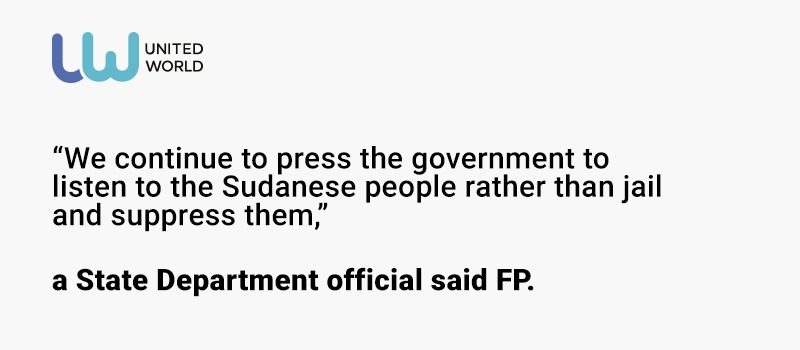
Much of what is happening now in Sudan was provoked by the United States under Barack Obama. For decades, the United States, on the one hand, made efforts to isolate Sudan, fermenting its image as an international outcast comparable to North Korea or Iran, and on the other, holding backstage talks with the authorities.
American political consultants took advantage of sincere popular anger
Earlier, in 1993, when one of the most serious diplomatic scandals between the countries broke out, the United States accused Khartoum of being a state sponsor of terrorism and imposed sanctions on them. Yet, while Washington officially denigrated Khartoum, the CIA (according to Foreign Policy) maintained its ties with the regime, benefiting from intelligence cooperation in the intensifying fight against terrorist groups in East Africa.
As part of this “cooperation,” during NATO’s intervention in Libya in 2011, Sudan provided intelligence to the alliance and became a channel for the transfer of weapons to the opposition, according to a report confirmed by two former US officials.
There are good reasons to believe that, although the prerequisite for the April revolution was the Sudanese cabinet’s inability to pass timely economic reforms, Western intervention was the real instigator of the so-called “drum revolution.” The visit of high-ranking officials from the US, Britain and the Netherlands is just a small illustration of this fact. The Americans, as per usual, played both sides, working with the “old guard” and the opposition.
In the aggregate of this complex puzzle, a clear picture emerges – American political consultants took advantage of sincere popular anger and applied classic technologies of color revolution to their advantage.
The Geopolitics of Sudan
Sudan is a huge country between North and Central Africa, which, until the independence of South Sudan, was the largest country on the continent. Its position has long attracted the attention of world powers looking to assert their dominance in the region.
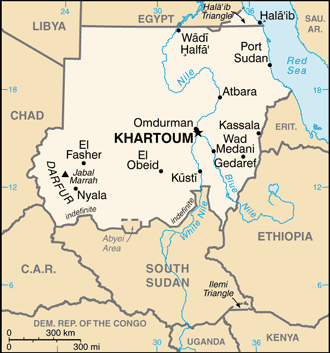
Since the borders of Sudan do not quite coincide with its various ethnic groups, internal ethnic conflicts have also helped fuel regional conflict. Ethnic groups in the Darfur region in eastern Sudan cross over into neighboring Chad, resulting in both countries waging mediating wars against one another for many years.
From a geopolitical point of view, globalists and individual representatives of US foreign affairs agencies rely on friendly governments to push their regional interests. The strategic position of Sudan (including its access to the Red Sea, the borders with Libya, Egypt and Eritrea) is apriori attractive for large players. In this case, the United States fears the competition of partners of Sudan – primarily Turkey, as well as China, Iran and Russia.
The United States is also interested in control over local resources. Sudan is rich in gold and silver, copper, zinc and other precious minerals.
By gradually loosening sanctions, the United States is counting on the new government making concessions and allowing western players to acquire profitable oil contracts. In February, the US embassy announced talks with oil company Baker Hughes, offering investments in the energy and infrastructure industry in Sudan in return.
Serious obstacles
Sudan’s proximity to the Middle East, as well as its cultural and religious image, make it interesting to various players for various reasons. In addition to Turkey (which is interested in a Red Sea base), the US, Russia and China, Saudi Arabia is highly interested in investing in Sudan, as are the United Arab Emirates and Egypt.
It is worth noting that the military transitional governments in North Africa face serious obstacles. The fall of the former rulers in Sudan and Algeria have encouraged opposition groups craving political change… or, more precisely, foreign funding. The military is trying to cope with a tumultuous transition, negotiating between the demands of the opposition, the national elites and other military officers.
However, as the latest coup attempt shows, there is not even unity among the Sudanese military itself. In this regard, Sudan will likely need to rely on brute force to quell the unrest, which the pro-Western opposition will use to their advantage in their propaganda.
The transitional government may temporarily maintain order but is ultimately unable to institute a full-fledged nation-building project. The countries of North Africa and the continent as a whole are experiencing a serious shortage of new political ideas and ideological solutions. It is obvious that the radical Islam that had been prevailing in North Africa cannot meet the population’s needs, while secular liberal democracy has virtually no support.
This leaves Sudan with a serious problem. The country needs a thorough political overhaul, without which, it might collapse altogether.


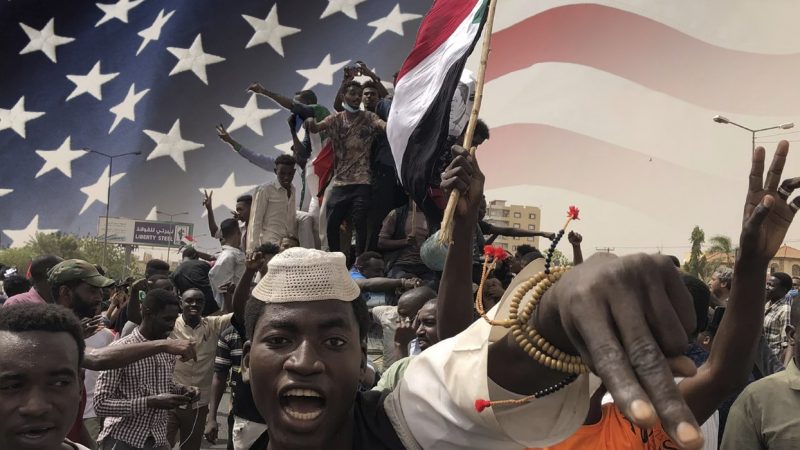


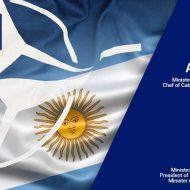



Leave a Reply